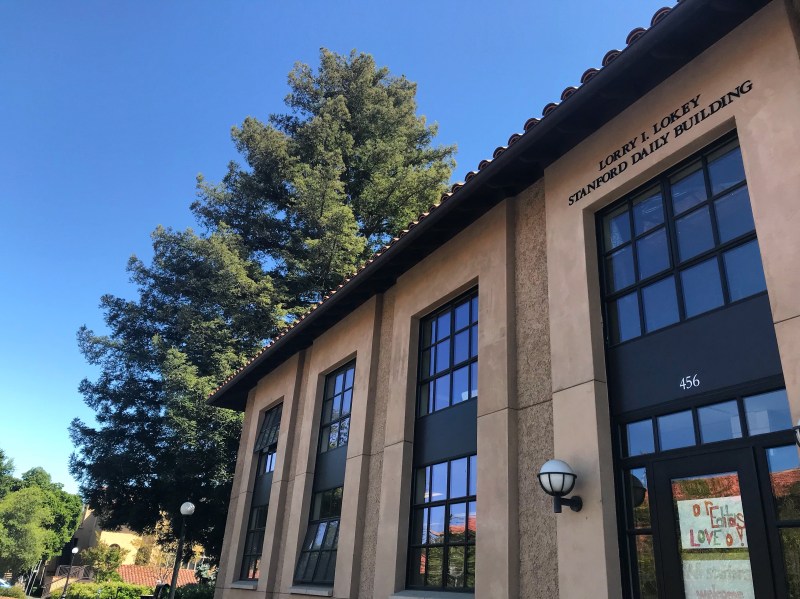Over the past 20 months, the legitimacy and objectivity of journalism across America have been viciously assaulted. Throughout his campaign and presidency, Donald Trump has repeatedly and openly attacked America’s news outlets, accusing them of colluding against the White House as “an enemy of the people.” Not only are these attacks baseless and irresponsible, but they also demean legitimate and necessary media critiques, which in turn help keep reporters accountable.
These claims of so-called “fake news” have undermined the very existence of a free press, eroding the credibility of reporting and making it increasingly difficult for smaller, local publications to flourish.
Today, we reaffirm our commitment to First Amendment principles and an unswerving commitment to truth. The Stanford Daily joins more than 300 newspapers who have answered The Boston Globe’s original call for a “coordinated editorial response” to the President’s active undermining of news organizations.
For us, this issue is a local imperative as much as it is a national and even existential one. On Tuesday afternoon, The Daily published a news article examining whether the Stanford College Republicans (SCR) had violated a University policy in endorsing more than 20 candidates seeking office in midterm elections. The author afforded SCR multiple opportunities to comment on the matter; the organization did not respond. But they were prompt in deeming our coverage “fake news!” — while simultaneously thanking our coverage for “vindicating” them — as soon as the piece was available for public consumption.
We recognize that our coverage of SCR can afford the organization’s agenda a platform, even as we critique its actions. We also recognize that SCR’s use of phrases such as “fake news” may not necessarily derive from a true distrust in our reporting. Rather, SCR members appeared to parrot the words of a U.S. president who has decided to deny the press’ well-founded critiques of him with a cheap punchline.
But an acute danger emerges from SCR’s groundless rhetoric that aims to dismantle the media’s credibility. And it’s not one we will allow. A free and independent press is vital to the American system of government, and when the core institutional pillars of American democracy are attacked, the situation warrants critical discussion.
Protecting a free press is an ageless issue that transcends our political moment, even on campus. Past Daily leaders have exhibited immense courage at critical moments defining the extent of our paper’s independence.
In Jan. 1906, Daily Editor-in-Chief Ben Allen ’07 authored an editorial condemning drunken roughhousing by Encina Hall’s male residents. University administrators, frustrated by the piece’s critical nature and empowered by the paper’s institutional dependence, suspended Allen within six days of its publication. With expulsion hanging over Allen’s head, then-President David Starr Jordan extended to Allen an enticing offer: step down from his editorship and return to the University. Allen declined on principle.
“I consider this to be a question of greater importance than my mere personality,” Allen told The Daily that winter. “It is a question of policy. How is the student press of this University to be governed?”
In April of 1971, after The Daily covered an anti-Vietnam protest that turned violent, Palo Alto Police Department searched our offices without our permission to seize photographs we took as evidence. We felt this was wrong.
“If what is in our offices is … open to becoming evidence in court … we cease to be a journalistic organization and become an information gatherer,” said Vol. 159 Editor-in-Chief Felicity Barringer ’71.
As a result, The Daily sued the Police Department; the Supreme Court heard oral arguments for the case in 1978. While we did not win our case, it galvanized national attention and support for freedom of the press, leading directly to Congress passing the Privacy Protection Act of 1980, which protects journalists from being subjected to the kind of search we were without a subpoena.
As we hold ourselves to the standards our predecessors have set, we are privileged to continue bringing fact-based, independent reporting to our Stanford community. Today’s Daily editors stand on the shoulders of a long and deep-seated legacy of editors protecting First Amendment principles at this paper.
In the past, we have remained steadfast in the face of interference from Stanford administrators and invasive searches by the police. Today, we stand up to more insidious attacks on our credibility that threaten to permeate our readership’s collective consciousness.
Contact the Board at opinions ‘at’ stanforddaily.com.
